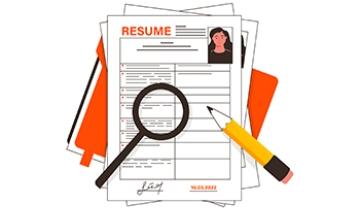Over several weeks in late July and early August 2024, Illinois Gov. JB Pritzker signed a number of bills that will impact employers. Employers with employees in Illinois should review these new and updated laws and act as necessary, including updating relevant policies and procedures. Currently, regulations on how employers should apply these changes are unavailable. MRA will continue to monitor for updates and make them available to members as they are released.
EFFECTIVE AUGUST 1, 2024
Amendments to the Illinois Wage Payment and Collection Act
- Senate Bill 3208 amends the Illinois Wage Payment and Collection Act to maintain copies of employees’ pay stubs for a period of three years after the payment date. Provides employer with 21 days following an employee’s request to provide copies of their pay stubs. Terminated employees may request copies of their pay stubs for a period of one year following separation. The amendments also include a definition for “pay stub,” which is defined as “an itemized statement or statements reflecting an employee’s hours worked, rate of pay, overtime pay and overtime hours worked, gross wages earned, deductions made from the employee’s wages, and the total wages and deductions year to date.”
EFFECTIVE AUGUST 2, 2024
Amendments to the Illinois Biometric Information Privacy Act
- Senate Bill 2979 amends the Illinois Biometric Information Privacy Act (BIPA) by limiting statutory damages allowed under the Act. It also clarifies that multiple uses of a system that collects biometric information (such as timeclocks) constitutes a single usage for purposes of damages if an employer does not comply with BIPA.
EFFECTIVE AUGUST 6, 2024
Amendments to the Illinois Freedom to Work Act
- Gov. Pritzker also signed two amendments to the Illinois Freedom to Work Act, both effective immediately. Senate Bill 2737 renders any covenant not to compete or covenant not to solicit entered into after January 1, 2022, unenforceable with respect to professionals licensed in Illinois who provide mental health services to veterans and first responders.
- Senate Bill 2770 provides that a covenant not to compete, or not to solicit, is void and illegal with respect to individuals employed in construction, regardless of whether an individual is covered by a bona fide collective bargaining agreement.
EFFECTIVE AUGUST 9, 2024
Amendments to the Illinois Day and Temporary Services Act
- Senate Bill 3650 amends the Illinois Day and Temporary Services Act by:
- Requiring day and temporary labor agencies to provide notices to their employees related to information about the job, wages, and transportation.
- Requiring these agencies to provide confirmation to applicants who are looking for work but not placed.
- Expands the definition of a labor dispute and gives day and temporary laborers the right to refuse an assignment with a company experiencing a labor dispute or strike.
- Establishing “equal pay” requirements that require the same rate of pay as the lowest paid direct-hire employee of the third-party client for which the temporary worker provides service once the temporary worker works at least 720 hours in a 12-month period (for the same third-party client).
- Adding safety and training requirements.
EFFECTIVE JANUARY 1, 2025
Amendments to the Illinois Equal Pay Act
- House Bill 3129 amends the Illinois Equal Pay Act and requires all employers, both public and private, with 15 or more employees to provide pay scale and benefit information on all postings for open positions. These requirements apply to any job that will be performed within the state of Illinois, either in whole or in part. These requirements apply to any third-party agency used by the employer.
In determining the pay range that will be posted employers may use the previously determined salary range, the actual salary range earned by current incumbents, or the budgeted amount for the position.
The description of benefits should include a general description of the benefits associated with the position including any additional compensation such as bonuses, stock options, or other benefits.
Additionally, employers are required to make current employees aware of all promotion opportunities at least 14 days after the external posting is listed.
Employers are required to maintain records of the pay scale and benefits information for a period of at least 5 years.
Amendments to the Illinois Human Rights Act
- House Bill 2161 provides protections for an employee based on family responsibilities. The bill defines “family responsibilities” as an employee providing care, or being perceived as providing care, to a family member, whether that care is in the past, present, or future. The amendment also prohibits the use of this information as it relates to the terms and conditions of employment (e.g., hiring, promotion, training, etc.).
Covered family members include an employee’s child, stepchild, spouse, domestic partner, sibling, parent, grandchild, and father- and mother-in-law, grandparent, or stepparent. Care for a covered family member includes activities related to personal care such as assisting with basic medical care, safety, hygiene, and providing transportation to medical appointments for a covered family member unable to meet these demands themselves. It also includes providing emotional support to covered family members with a serious health condition who are receiving inpatient or home care.
The amendment does not require an employer to make modifications to existing company policies or other accommodations based on family responsibilities, provided that those policies comply with the IHRA.
- House Bill 4867 amends the IHRA by adding protections for employees based on their reproductive health decisions. These include the employee’s decisions related to the use of contraceptives; fertility or sterilization care; assisted reproductive technologies; miscarriage management care; health care related to the continuation or termination of pregnancy; or prenatal, intranatal, or postnatal care.
- Senate Bill 3310 amends the IHRA to extend the deadline for filing an administrative charge with the Illinois Department of Human Rights based on employment discrimination, harassment, or retaliation from 300 days to 2 years.
Amendment to the Illinois Personnel Records Review Act
- House Bill 3763 clarifies several aspects of the Illinois Personnel Records Review Act (IPRA) and includes several new requirements for employers. The amendment clarifies that all requests by employees must be in writing, including electronic means such as email or text message. Requests must be made to the person responsible for maintaining the employer’s personnel records and must identify what records are being requested.
Employees are entitled to the following categories of documents:
1. Personnel documents used in determining an employee’s qualifications for employment, promotion, transfer, compensation, benefits, disciplinary action, or termination.
2. Any documents maintained by the employer that are legally binding upon the employee.
3. Employee handbooks generally available to all employees or which the employee has acknowledged.
4. Any written employer policies or processes to which the employee was subject to that may impact their position.
Amendment to the Right to Privacy in the Workplace Act
- Senate Bill 0508 provides that unless otherwise required by state or federal law, an employer shall not voluntarily enroll in the E-Verify program or similar Electronic Employment Verification System. Also, an employer may not impose work authorization verification or reverification requirements greater than those required by federal law. Employers required to utilize E-Verify or other electronic employment verification systems who receive notification from the Social Security Administration of a discrepancy between an employee’s name or Social Security number and the Social Security Administration’s records must provide the employee with specified documents.
The amendments also:
Provide additional rights and protections to an employee following the notification from the Social Security Administration of a discrepancy.
Require an employer to provide notice to current employees, by posting in the language the employer normally uses to communicate employment-related information to the employee, of any inspections of I-9 Employment Eligibility Verification forms or other employment records conducted by the inspecting entity within 72 hours after receiving notice of the inspection.
Require additional notices concerning the obligations of the employer and the employee.
NEW Child Labor Law of 2024
- Senate Bill 3646 sets standards for working conditions for children age 15 and younger, including limiting hours of work and updates the list of jobs in which minors may not work. It requires work permits to be approved by both the minor’s parent or guardian and a review of the work to be performed by school officials.
NEW Worker Freedom of Speech Act
- Senate Bill 3649 codifies that employers cannot discharge, discipline, or otherwise penalize employees who do not participate in “captive audience” meetings.
EFFECTIVE JANUARY 1, 2026
Amendment to the Illinois Human Rights Act
- House Bill 3773 amends the IHRA to protect employees from discrimination from the use of artificial intelligence (AI) in the workplace and ensures employers are transparent about their use of AI for employment-related decisions.
MRA understands the significance of these changes and their impact on our members. If you need assistance, please contact us.






